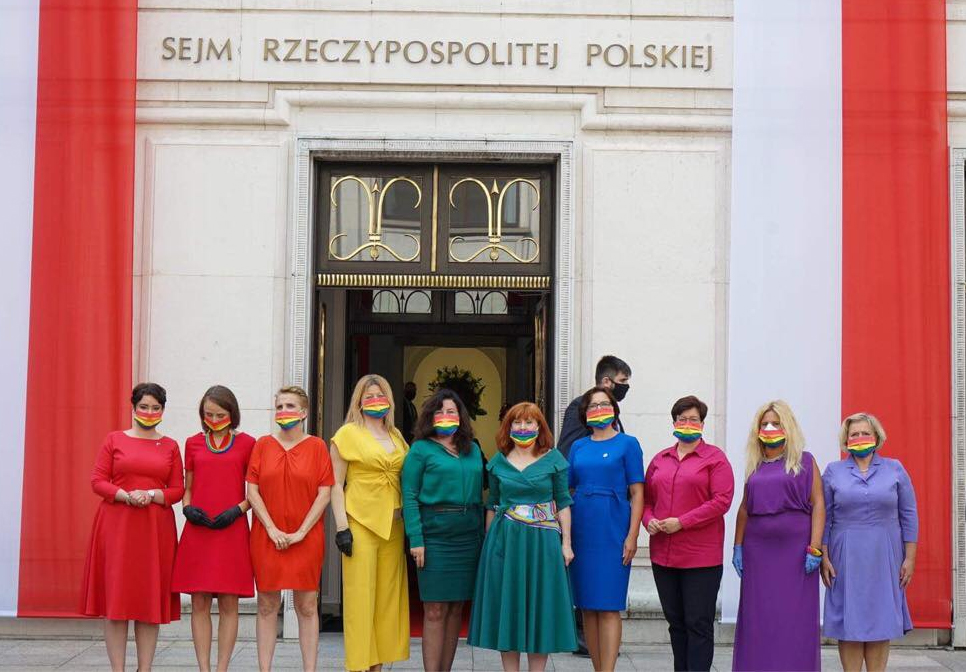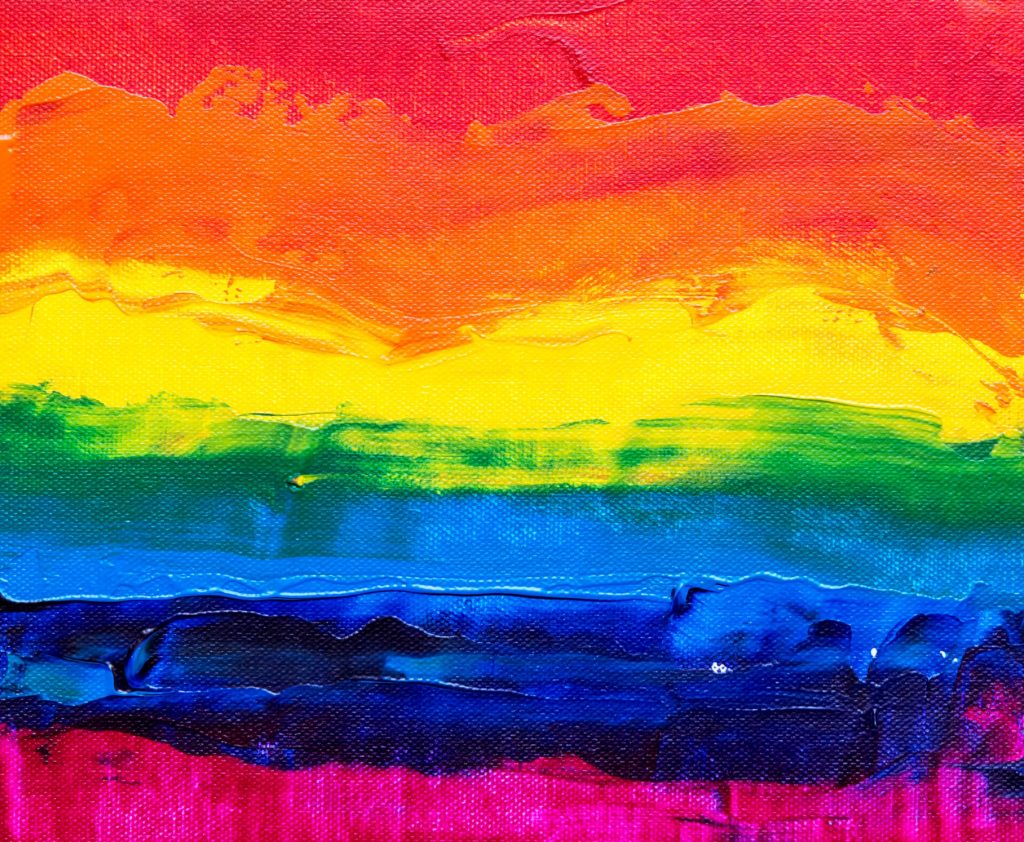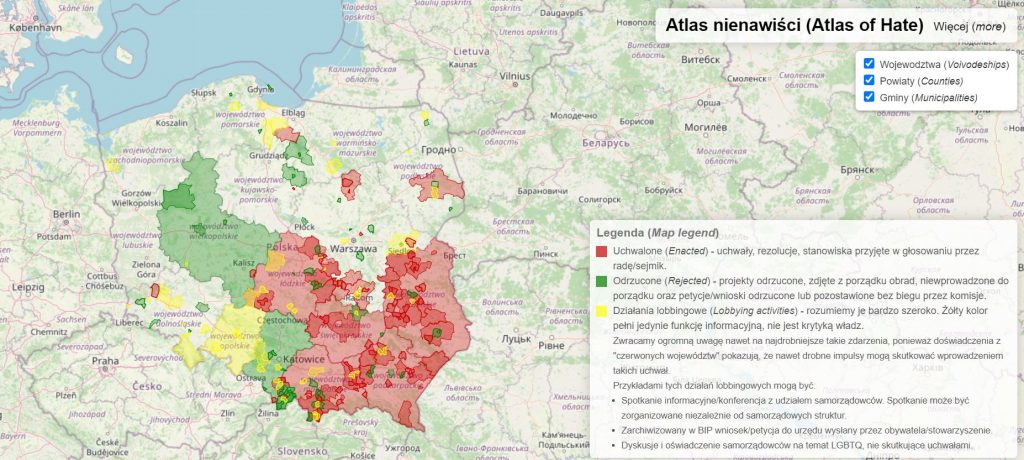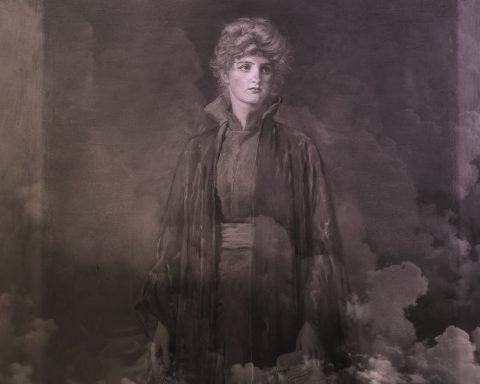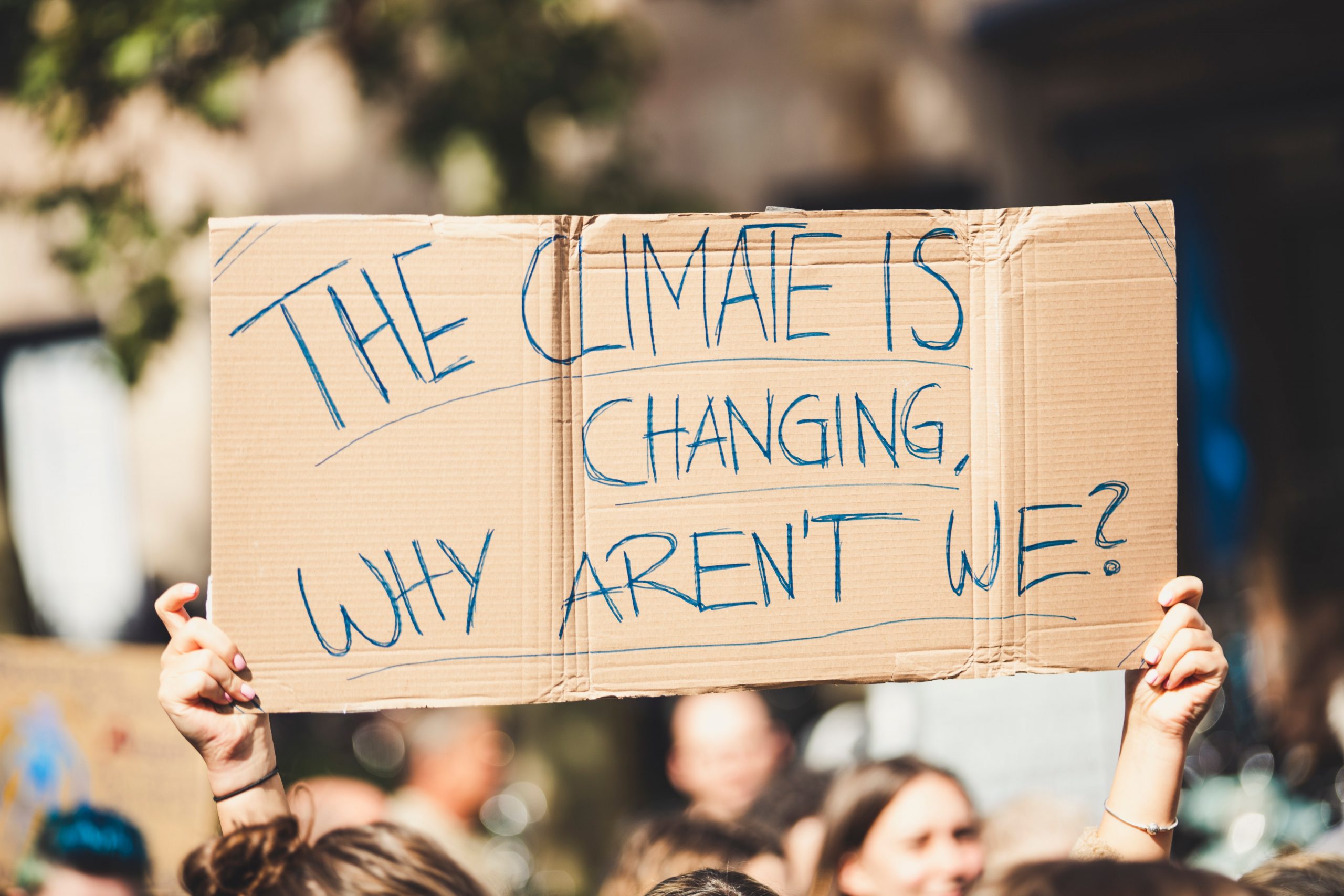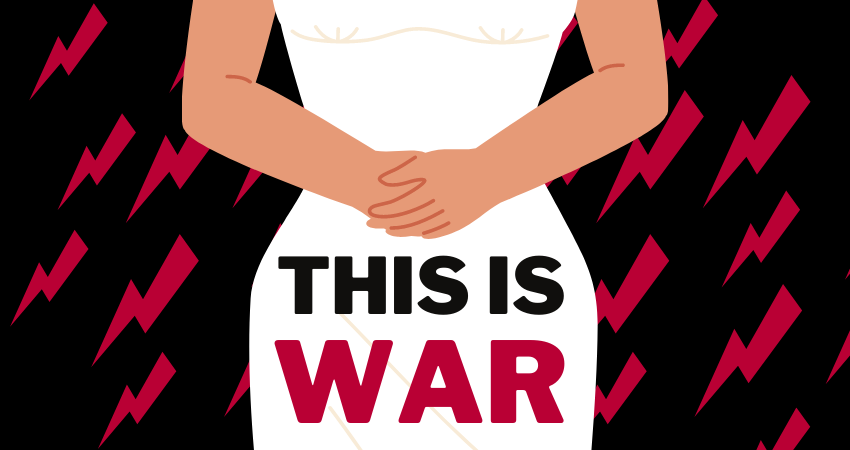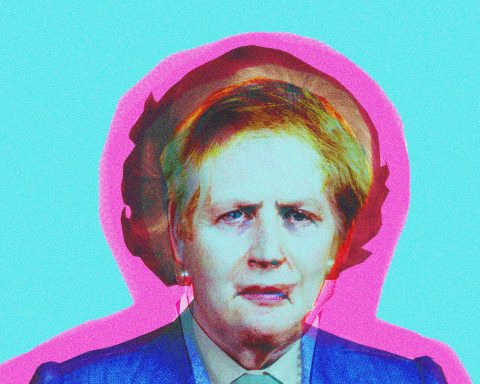On Saturday, a protest in solidarity with LGBTQ+ activist took place in the city of Poznan in Poland. An activist, known as Margot, was arrested on the 7th of August in Warsaw during a protest against homophobia. Along with several other protesters, she was held for 48 hours for “insulting religious feelings and insulting Warsaw monuments,“ reported Human Rights Watch. She was detained in connection to defacing an anti-LGBT truck that was projecting homophobic slurs through a speaker. While the Saturday protest was taking place, a larger-scale demonstration took place nearby, attracting thousands of people donning rainbow flags, and banners with messages in further support of Margot. Margot, who identifies as a woman, has been sentenced to two months in a male prison. Trans-Fuzja, a Polish transgender rights organisation, justly criticised this decision. The organisation’s vice-president and psychologist Julia Kata, commented that putting Margot into a male prison will likely leave her with trauma that will take years to heal. This is the image of a country that persecutes people simply for existing in the wrong body or loving the wrong person.
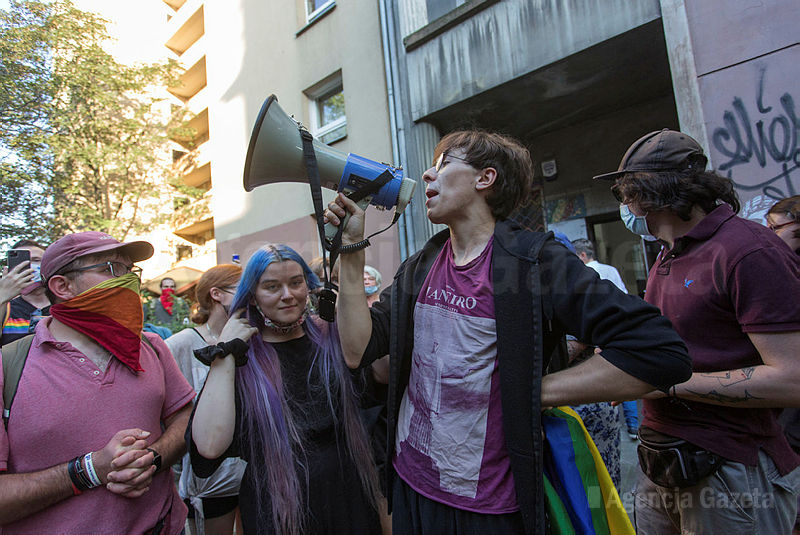
Under Article 196 of Poland’s criminal code, a person who “offends the religious feelings of others by publicly insulting a religious object or place of worship” may face up to two years in prison. The government has defended the authorities’ actions against the activists, saying, “… certain boundaries [of tolerance] were crossed.” In May 2019, police invoked Article 196 when arresting an artist, Elżbieta Podlesna, over a picture she created of a religious icon with a rainbow halo.
Human Rights Watch, 7 August 2020
There is no doubt that being an LGBTQ+ person in Poland is dangerous. You can find countless stories online about bullying and harassment of people because of their sexuality or gender identity. The Campaign Against Homophobia organisation (KPH) reports that between 63% and 78.6% of LGBTQ+ people have experienced violence in the last two years. This hostility towards people who don’t conform to heterosexual norms can be especially damaging to young people. LGBTQ+ people in Poland are more likely to suffer from mental health problems than non-LGBTQ+ people, which the KPH report links to the alarmingly low rates of acceptance of LGBTQ+ individuals by their family members.

Although acceptance is low across all family members, brothers are the source of least acceptance. According to KPH, could be due to the conservative radicalisation of young men. The report states that the less acceptance an individual has from their family, the more likely they are to have suicidal thoughts, and showed children and adolescents as the group most likely to frequently consider suicide, with over two thirds of survey respondents stating they had thought about suicide in the past. (KPH, 2015-16). These disheartening statistics illustrate the extent of the Polish society’s disapproval of the LGBTQ+ community.
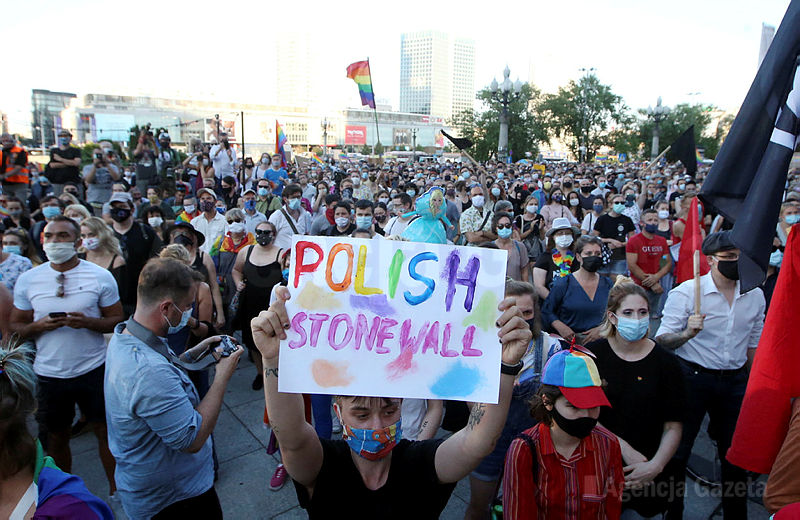
We spoke to Kamil and Alicja, who agreed to provide us an insight into LGBTQ+ life in Poland.
Alicja is twenty and is studying English Philology to become a translator. “I grew up in a conservative, catholic family, as I believe many people did here in Poland. I must say, it made figuring myself out quite a challenge. There was no chance my family would educate me on the LGBTQ+ community, in any way other than spreading harmful misconceptions that is. Everything I actually know came from my friends and the internet. I remember clearly how a close friend of mine came out to me as bisexual, that was the moment I began asking myself “Wait, am I straight though? Maybe I’m bisexual too? Maybe I just haven’t asked myself enough questions about that yet because I was conditioned to believe straight is the “default” sexuality?” For Alicja, adolescence was a time of confusion and questioning, but eventually she learned to listen to herself. “I had to reject the entire value system I was taught before I was able to figure out my own, one I feel comfortable with. It was a bumpy road, but I gradually worked my way up into being a self satisfied, openly lesbian, confident woman I am today.”
Given the recent developments in the news, we asked Alicja how safe she feels in Poland right now. “I wouldn’t say I feel as safe as I deserve to feel, not with all the news about LGBTQ+ people being arrested and pressed with ridiculously serious charges for what simply is using our freedom of speech and demanding being treated with dignity. Even though being LGBTQ+ isn’t technically punishable by law in Poland, it is being actively held against us. The worst that has ever happened to me personally was verbal abuse, though there is this underlying fear in me that one day someone will try to “go further”, as physical assault is what happened to people like me many times before. I try not to let that fear control me though. When I go out, I wear my rainbow mask and carry a rainbow bag with me. That’s my way of battling fears and doubts that I have, just walking around proud and accessorised. I keep telling both my surroundings and myself that I’m not doing anything wrong and I’m not “asking for attention” or “provoking people to hurt me”. Even though I don’t feel perfectly safe, as long as I’m challenging my fears, I’m winning, and nothing and nobody can take that away from me.”

“I try not to let that fear control me though. When I go out, I wear my rainbow mask and carry a rainbow bag with me.“
Alicja is openly lesbian and surrounds herself with other LGBTQ+ people or allies. “Being LGBTQ+ is an important part of my identity and I’m not willing to stick with people who won’t accept me for who I am. Sometimes people just approach me and ask if I’m gay, and I’m happy to tell them I am. That’s not something everyone is comfortable with though and that’s fine. Having said that, I haven’t told anyone from my family about it, except for my dad who is my loving ally and whom I trust completely. We talked about it together and decided they are not the kind of people to accept me, and coming out to them would only bring me pain and discomfort. So I just distanced myself from them. As much as I would want them to accept me, my own comfort is always my priority. If I can avoid a stressful and disappointing experience, I will do that, and I believe nobody should ever be shamed for choosing who they want and don’t want to come out to. “
Kamil, who lives in south-west Poland, told us about his experiences as an LGBTQ+ man. “My growing up experience can be divided into two stages. Dark and light. The dark one was, unfortunately, the period of high school where there were persecutions, humiliations and other unpleasant things.” He believes that what he had gone through toughened him up and made me him who he is now. “The light stage, on the other hand, was a period of full self-acceptance and total lack of concern for what others think about your sexual orientation. It’s the moment you realise that, you are not different from others and you are a valuable individual.”



“It’s the moment you realise that, you are not different from others and you are a valuable individual.“
Like Alicja, Kamil feels at ease with his sexual orientation now. “When it comes to sharing with people that I am gay, if someone asks me directly, why not tell them? Of course, I don’t just go around saying “Hello, I’m Kamil and I’m gay”.” Regarding family acceptance, he is in the minority of LGBTQ+ people who can rely on their parents’ support. “Only my parents know about this. For some reason, I have no internal need to tell the rest of the family about my orientation. I will always have support from my parents, regardless of whether I am gay or not.”
Last month, Andrzej Duda was re-elected as the president of Poland, signalling a further five years of government mistreatment of the LGBTQ+ community. An ally of the notoriously religious right-wing Law and Justice party, Duda has often acted as a megaphone for the party’s homophobic agenda. During his campaign, he declared “LGBT rights an “ideology” more destructive than communism“. Duda had also signed the so-called “family card” project which blatantly declares marriage as a union between a man and a woman, seeks to prevent homosexual couples from being allowed to adopt, and bans the spread of “LGBT ideology” in public institutions.
To illustrate the extent of support for the family card and similar projects, activists Kuba Gawron, Paulina Pająk, and Paweł Preneta have created a map of the areas of Poland that have enacted the card’s agenda, thereby declaring themselves “LGBT-free zones”.


“I do not feel safe walking with a man through the park or sitting at a restaurant, because I do not know what may happen“
When we asked Kamil about his opinion on the matter, he responded wearily, “I am embarrassed by such places. That’s all I have to say, because it is really a waste of words.” He also shared his thoughts with us on whether the president’s re-election will have an effect on people’s attitudes towards the LGBTQ+ community and rights. “I’m afraid of what it will lead to. A person in his position should be a model for the whole country. Claiming that I’m just an ideology is ridiculous. Seriously. I don’t want to speculate because everything may turn out differently. However, at the moment I do not feel safe walking with a man through the park or sitting at a restaurant, because I do not know what may happen.” Kamil finds it difficult to imagine the situation changing for the better, at least not with president Duda in power. “Sometimes I delude myself that things will change, but they will not. If an example citizen is a President who does not support LGBTQ + people then nothing will change.”
Alicja on the other hand, felt upset by the “LGBT-free zones”. “It’s truly a disgusting example of discrimination that should be brought to everyone’s attention and publicly put to shame for as long as it takes for it to stop being a thing. It breaks my heart. I keep asking myself how is dividing people into “more worthy” and “less worthy” based on their race, religion, gender or sexuality any different from what the Nazis believed in? First come “LGBT+ free zones”, and then what? Poland, as a nation, should be very well aware of what segregation of people can lead to. I see many Polish people claiming to be patriotic and be proudly homophobic, and I’m here to tell them: you can never be patriotic if your way of acting and thinking reflects that of the oppressors you claim you condemn.” She shared Kamil’s sentiment regarding the outlook on Poland’s future post Duda’s re-election. “I’m afraid that at best, the situation will remain the same, and at worst, it will gradually become worse and worse. None of the possible scenarios I see are very optimistic for the time being. As long as the people in authority keep antagonising the LGBTQ+ community the way they do, it’s going to impact the way our society thinks. Those of us who are against LGBTQ+ will feel validated in their wrong and harmful opinions, and those of us who are fighting for justice will be silenced and harassed. Frankly speaking, the re-election of president Duda is very disappointing. It happened right after I went to my first ever LGBTQ+ protest, where for the first time of my life, I felt like my voice was heard, valid, and capable of making a significant change. The fact that it wasn’t enough to vote Andrzej Duda out of power brings me an overwhelming amount of disappointment I am yet to deal with. What does it say about us if more than half of the country I live in wants an openly homophobic person to represent Poland? I don’t want to have to answer that question.”
Despite the uncertain situation, Alicja remains optimistic. “As much as it hurts me to see the discrimination and abuse our community is currently facing, I truly believe that people’s attitudes can and will change. It will take a lot of work and time though. We have to keep speaking up, keep letting people know that homophobia, transphobia, all of this is wrong and under no circumstances will it be tolerated!” She knows, however, that progress will be difficult without the government’s support. “We need to be able to express ourselves freely without the fear of facing unjust consequences of it. The Polish society needs to understand that LGBTQ+ is not the ideology it’s being falsely portrayed as. It’s a community of people who are equally worthy of respect as those who aren’t a part of it. We have always existed and will keep existing regardless of anyone’s opinion on us. We are not a threat to anyone. It’s not the fight of “the bigoted old pricks” vs “the spoiled young generation”. It’s not the fight of the Catholic Church vs non believers. Our fight is not “just another petty political thing”, it’s a fight for human rights and equality.”
Finally, they both shared a few words on what they would like people to know about living in Poland as an LGBTQ+ person.
Kamil: “I would like people to understand a few things about what it is like to be gay. The first is adolescence – when you are afraid to trust people and say that you prefer the same sex, as it was in my case. The second thing is dealing with ‘otherness’. In high school, almost a dozen years ago I began to notice that I preferred men, and my peers probably saw it too because later they started calling me a faggot and freak. I was kicked, spat on and pushed into lockers. But I didn’t think much of it, I thought they were just bullying the weaker kid. Now, in hindsight I can see that it was an evident act of homophobia and I should have done something about it, but back then I was too scared. What would people think? How would my parents react? Because of this, I think that everyone should know what problems LGBTQ+ people are facing. Everyone who has experienced what I have, or even had a worse time, is a very strong person. Stronger than their persecutors.”
Alicja: “I’d just like to say that I’m very thankful for the opportunity to speak up about the topic in this interview! I want to use this opportunity to stress how important it is that the situation of LGBTQ+ community in Poland is spoken about. To everyone who’s not from Poland, please keep educating yourself, spreading information and signing petitions, the Polish LGBTQ+ community appreciates your help greatly! And to my fellow LGBTQ+ Polish friends, you’re never alone in this fight! You are amazing, brave, beautiful people and I admire and love every single one of you. Stay strong!”
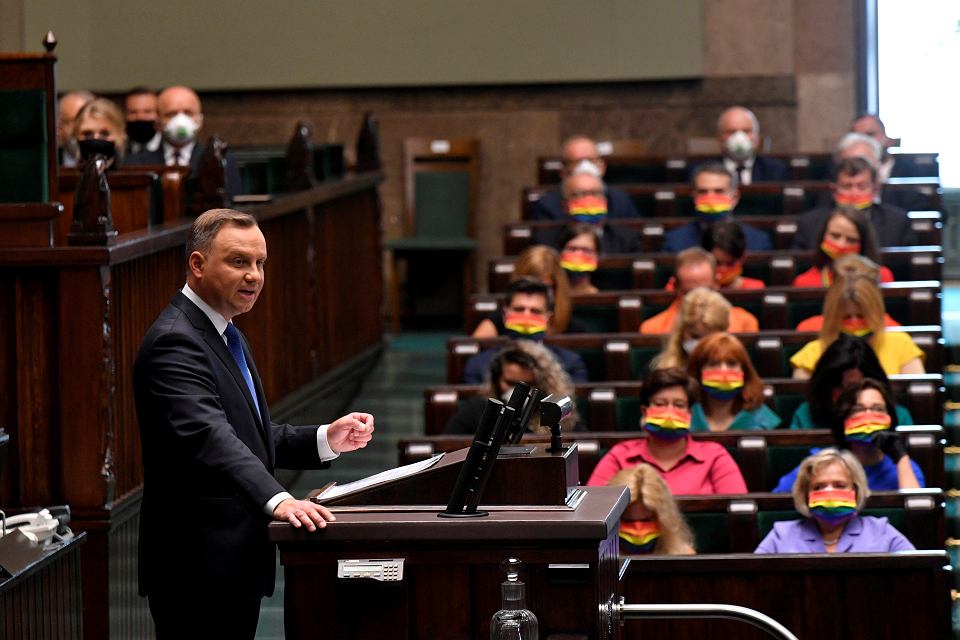

While the state of LGBTQ+ rights in Poland is undoubtedly dire, there are signs that a part of Poland is fighting back. Firstly, the presidential election results were incredibly close. Andrzej Duda beat the liberal-conservative Rafal Trzaskowski by a mere 2.06%, signalling that nearly half of Poland didn’t want things to continue as they are. Secondly, all is not entirely bleak in Polish politics – the left-wing party Lewica are a recent example of how Poland is challenging the tide of authoritarian homophobia. A group of Lewica MPs, who call themselves the Messengers of the Left protested the government and president Duda, by dressing in rainbow colours including rainbow-themed masks for the swearing-in ceremony of the Polish president. This historic moment, in which Mr Duda gave his speech standing next to rows of the colourful opposition was swiftly deleted from the government’s official website. The Polish government was embarrassed of a pro-LGBTQ+ photograph, when it should have been embarrassed by the years of failing the most vulnerable. As Lewica has shown, the Polish government’s crimes against the LGBTQ+ community will not go unchallenged as Lewica has shown. The ‘other half’ of Poland will continue to fight against its oppressors, and we must do our job to not let their voices go unheard.
